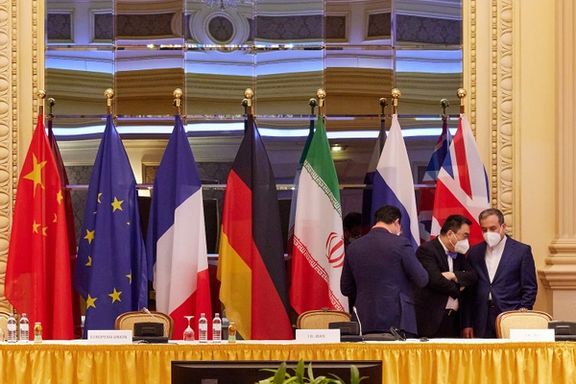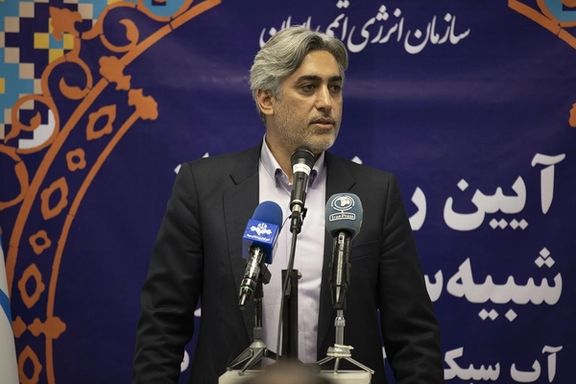Iranian Official Says JCPOA Dead, Time For Western Economic Concessions

The Deputy of Iran’s Atomic Energy Organization has said that the JCPOA nuclear deal is no longer effective, especially for Europeans and the United States.

The Deputy of Iran’s Atomic Energy Organization has said that the JCPOA nuclear deal is no longer effective, especially for Europeans and the United States.
Amir-Hossein Feghhi (Feqhi) speaking to the semi-official ISNA website stated that the 2015 nuclear deal, based on what the Westerners believed, was an instrument to create a pause in Iran’s nuclear industry and to ensure that Iran does not pursue nuclear weapons. “Now, the entire world has concluded that Iran is not seeking to develop weapons, and the possibility of stopping Iran’s nuclear program no longer exists,” Feghhi emphasized.
Iran has accumulated enough enriched uranium to be able to produce several nuclear bombs, according to the experts and the International Atomic Energy Agency, the IAEA. It has effectively reached a nuclear threshold state and can use the fissile material to produce weapons possibly within months.
Feghhi, seemingly taunting the West said that now is the time to focus on economic relations, hinting at sanctions that were imposed after the United States withdrew from the JCPOA in May 2018 and imposed crippling ‘maximum pressure’ on Tehran. The enforcement of these sanctions has gradually waned during the Biden administration, enabling Iran to boost its oil exports to almost pre-sanctions level, while enriching uranium to dangerous levels.

He went on to say that “Iran used to negotiate for its undeniable right to enrichment and also for the removal of sanctions.” However, “we have moved past all these discussions. There is no one in the world who can reject Iran’s nuclear capability or claim it can be halted.” Regarding the sanctions, Feghhi said, “I believe shared economic interests should be the subject of negotiation.”
Earlier this month Washington agreed to release $6 billion of Iran’s money frozen in South Korea due to US sanctions, in exchange to free five American citizens held hostage in Tehran. In June, the US had also agreed to release $2.7 billion from Iraqi banks.
Many observers suspect that the Biden administration has reached an unofficial deal with the Islamic Republic to release nearly $20 billion in total and not enforce oil export sanctions if Tehran stops at 60-percent uranium enrichment, which is just short of weapons-grade material.
This in effect leaves Iran in a strong position, able to extract more concessions by threatening to breach an unwritten deal in the future.
Candidate Joe Biden announced in September 2020 that if elected President he would restore the JCPOA, signaling an end to former President Donald Trump’s maximum pressure policy. Immediately Iran’s illicit oil exports to China began to increase.
Days after the election, Iran’s parliament tabled a bill to obligate the government to increase the level of enrichment closer to weapons grade until the US would lift the sanctions. In early 2021, enrichment reached 20 percent and soon 60 percent levels, but the Biden administration entered talks with Tehran over the JCPOA in Vienna in April. After 18 months of protracted talks in Vienna the sides reached a deadlock, as Iran refused the last compromise offered by the European Union.
Biden seems not to have realized that Iran took advantage of his desire to restore the JCPOA to both evade sanctions and reach the nuclear threshold.
Iran’s nuclear deputy drove the point home, stating, We now comprehensive capabilities in the nuclear field, covering nearly all its dimensions and research and industrial sectors. We are well aware of what we possess, and of course, nuclear experts in advanced countries are also well aware of this, and they convey it to their policymakers as well.“